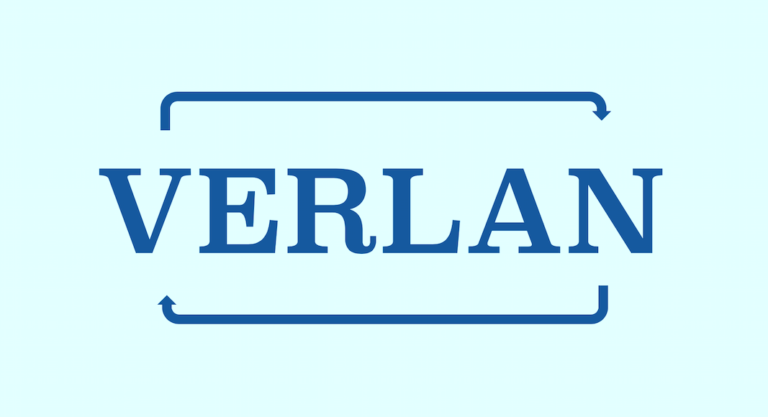La fachosphère. La charge mentale. La bigorexie. Every year, new words enter the French dictionary of reference, Larousse. The 2020 edition, which becomes available on May 21, will see 150 nouns, verbs and expressions enter its pages and integrate with the 60,000 words already on the pages, according to L’Express.
Criteria for entry: the words and expressions should be frequently used, not technical jargon, and possess some potential longevity (i.e., not simply be trendy).
The lucky few that do enter the dictionary are trendy in a way, however, in that they reflect trends in French society. Many of this year’s new words relate to fear, sustainability, tech and equality. Quite a few of the new words are translations of English words.
Here are 21 new entries in the French dictionary that you should start using immediately.
1. La charge mentale
The psychological effort/energy (affecting primarily women) required for domestic tasks, household management, and the lives of one’s children. It causes mental and physical fatigue. This term was coined by French illustrator Emma, presented in a genius comic strip representing the phenomenon.
In English: mental load, translated from the original French idea
2. La bigorexie
An English word, “big,” combined with a French word, “anorexie,” make this new dictionary entry to describe the condition of being addicted to the gym, physical fitness and sports. The obsession can impede the professional life and personal development, according to L’Express’s definition. L’Organisation mondiale de la santé (OMS) first declared it a sickness in 2011.
In English: bigorexia
3. Le locavorisme
The act of consuming seasonal fruits and vegetables and having a preference for locally grown produce.
In English: locavorism (the inspiration for “le locavorisme”) was first coined by The New York Sun, according to The New York Times, in 2008
4. La dédiésélisation
Besides being a mouthful to say, this noun encapsulates all efforts to reduce the number of diesel vehicles on the road (just think de-diesel-ization).
In English: dieselization is the closest thing in the English language
5. Inclusif / inclusive
This may seem surprising, but currently Larousse’s only definition of “inclusif” (inclusive, in English) is “containing or including something else in itself” (e.g., an all-inclusive vacation, a Monday to Friday inclusive happy hour). The new definition for inclusif relates to people: as defined by L’Express, “inclusif” is “ending a person or group’s exclusion by integrating them.” For example, “la langue inclusive” is what allows “acteur” to become “actrice” and for the existence of this gender-inclusive phrase, “les étudiants sont content.e.s.”
In English: inclusive
6. Le cyberdjihadisme
The use of the internet to promote or participate in jihad.
In English: cyber jihad
7. La smicardisation
The increase in the number of workers paid minimum wage (“au smic” in French). Currently there seems to be no English equivalent to this phenomenon.
In English: no equivalent, but there should be
8. Le survivalisme
The way of living adopted by people who are preparing for imminent disaster. Includes activities like stockpiling weapons, non-perishables, and things that fall into the category of camping gear, building a bunker, etc.
In English: survivalism
9. Ubériser
The French equivalent to the American English word “uberization,” meaning the replacement of services by apps, digital platforms, and other tech or start-up creations.
In English: uberize (the inspiration for “ubériser”), in existence in English since at least 2015
10. L’adulescence
The phenomenon of being in your early adulthood years (approximately 18 to 30) and still acting like an adolescent.
In English: kidult, a combination of the words kid and adult, that no one actually uses. (Frankly, considering how much we love combining words, it’s shocking we didn’t already think of “adulescence.”)
11. Ambassadrice
Though this word was already in the dictionary, it changed meaning: it no longer means the wife of an ambassador, it means a female ambassador.
In English: ambassador (it’s gender-neutral)
12. Suprémacisme
The U.S. has been talking about this buzzword, “supremacism,” for a few years. Indeed, suprémacisme is the ideology that believes a certain people or civilization is superior to others. The belief also legitimizes social, political, economic and military aspirations.
In English: supremacism, mostly used with the word “white” in front of it
13. La sentience
“La sentience” means to be alive and have a capacity to feel emotions, pain, and have a subjective perspective.
In English: sentience, though we prefer to use the adjective form, sentient
14. Licorne (second sense)
“Licorne” is a unicorn. Until this year, the only sense of the word was a mythical (maybe mystical) one-horned horse. In the 2020 edition, “licorne” will have a second meaning: a start-up, not publicly traded, with a valuation, based on a signficant growth potential, of more than a billion dollars (presumably American dollars).
In English: unicorn, whose second meaning was first coined in English in 2013 by American venture capitalist Aileen Lee
15. L’antispécisme
Another sort of vegan-driven idea, l’antispécisme is the idea that there is no hierarchy among diferent species of animals.
In English: “antispecism” can be found online but it’s not really in the English lexicon. There is “specieism,” though, which entered the Collins English Dictionary in 2014
16. Le bore-out
An Anglicism we can’t imagine L’Académie Française likes this one. Le bore-out is like burn-out, but instead of stemming from working too hard, le bore-out comes from a lack of interesting work tasks to do or a lack of work. BMFTV characterized it as “l’ennui profond” (the profound boredom) of certain salaried workers.
In English: “boreout” was coined in 2007 by Peter Werder and Philippe Rothlin, two Swiss buisness consultants, and published their book “Diagnose Boreout” (published in German that year, republished in English in 2008). (Note: “Diagnose Boreout” is the actual German title, so the original word is an Anglicism.) The term recently received new attention after a French businessman sued his employer in 2016 for causing him bore-out.
17. La fachosphère
An efficient word that encompasses the entire online presence (blogs, social media, videos, etc.) of the “extreme right” in France (far right, in the U.S.).
In English: no equivalent, but there should be
18. La cryptomonnaie
A digital form of currency (e.g., Bitcoin, Litecoin, Dogecoin).
In English: cryptocurrency, which “cryptomonnaie” is a translation of, has a first known use in English in 1990
19. Divulgâcher
Though the French are mostly using the verb “spoiler” (yes, based on the American verb “to spoil”), this new word, mostly used in Québec, entering the dictionary means the same thing. It’s a combination of “divulger” (divulge) and “gâcher” (spoil, like food).
In English: spoil
20. Le hackathon
A “hackathon” designates 24 to 48 hours when a group of people work together non-stop to come up with new, innovative ideas and solve problems.
In English: hackathon, first coined in English the 1990s, according to the Oxford English Dictionary
21. Antoine Griezmann and Kylian Mbappé
These two star players from France’s 2018 World Cup-winning team will be getting their own dictionary entries. Thirty-eight other people will be entering the dictionary. They’ll join the ranks of other figures like Banksy, Benjamin Millepied, and Malala Yousafzai, who were all new entries in the 2016 edition of the dictionary.
In English: no one can compare. Allez les bleus!
Featured image: Stock Photos from GlebSStock/Shutterstock






